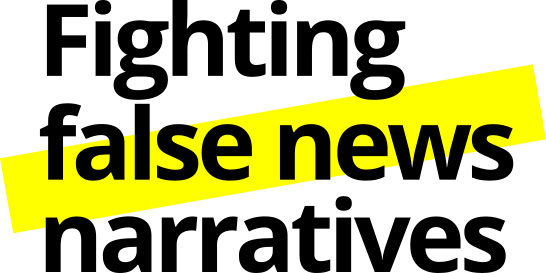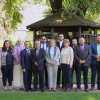The Psychological Effect of Fake News
We’re living in a world where we constantly get bombarded with information through social media platforms, making the emergence of fake news more reachable than ever before. While we can’t deny that social media has made it easier through bots, newsfeed algorithm and an augmented reach, still we cannot blame technology entirely for the inability of people from looking into facts from fiction.
According to John Buschman, Dean of University Libraries at Seton Hall University, fake news is not a new phenomenon. He cites examples of fake news “going back as far as the fifteenth century, and frequently arising and re-arising in the wake of a technological innovation: the printing press, postal systems, mass newspapers, film, radio, television, and now software and the web.[1]” Although fake news is nothing new amongst us, we still cannot forget how the the 2016 election, the term “fake news” has become a political buzzword and the topic of stories by major news organizations such as The New York Times, the Washington Post, and NPR[2].
The term is also linked to be the favorite term of Donald Trump, but unfortunately it didn’t remain only in his vocabulary, it also became a term used by a person not willing to debate a certain topic, hence using the term to end a discussion. Seeing how young people affected by social media interact with each other has made teachers more concerned because their ultimate goal is to have kids that think critically, however that has become a great challenge for everybody involved.
The problem is not just malicious bots or chaos – loving trolls or Macedonian teenagers pushing phony stories for profit. The problem is also the susceptible readers. And experts like Wineburg believe that the better we understand the way we think in the digital world, the better chance we have to be part of the solution[3].
Fake news are getting the needed attention in the U.S. and in Europe from different angles such as politics, economy and other social sciences such as psychologist who suggest that even though people might have good intentions they still “fall” for fake news because of multiple reasons. Some of those reasons can be emotional and irrational thinking, or simply relying on things that are familiar to the human brain, or sometimes having that personal bias blind spot, which makes people take sides in an unconscious way. But the results do show that what we interpret as real or fake news is partially shaped by our pre-existing beliefs and what we want to believe. They also show that, perhaps contrary to what many people believe about themselves, fake news can be persuasive[4].
The risk of fake news to modern society and democracy is that it creates and maintains polarizing sides that never explore better solutions, compromise, or embrace change. Through the simple words, “That’s fake news,” there are many unspoken messages, including: “I’m right.”, “I’m powerful.”, “I don’t care what you think.”, “and It’s not worth debating.” On the contrary, thousands of years of philosophy show that debate is always worth the time and effort. Debate is how societies solve problems and evolve as human beings. If history is correct, fake news will have its moment in the spotlight. But because humans are designed to care about truth, morality, and meaning, healthy debate will eventually prevail over misinformation and deception[5].
Meral Musli Tajroska – a psychologist, an expert on violent extremism and radicalism and a woman rights activist
[1] https://www.psychologytoday.com/ca/blog/the-moment-youth/201902/what-is-fake-news-is-debate-worth-the-effort
[2] https://www.psychologyinaction.org/psychology-in-action-1/2019/2/18/why-cant-we-quit-fake-news
[3] http://time.com/5362183/the-real-fake-news-crisis/
[4] https://www.psychologytoday.com/us/blog/the-big-questions/201903/fake-news
[5] Rebecca Newberger Goldstein, author of Plato at the Googleplex, Why Philosophy Won’t Go Away,









